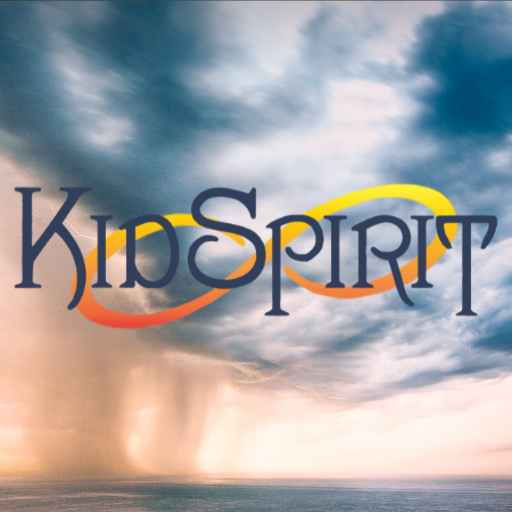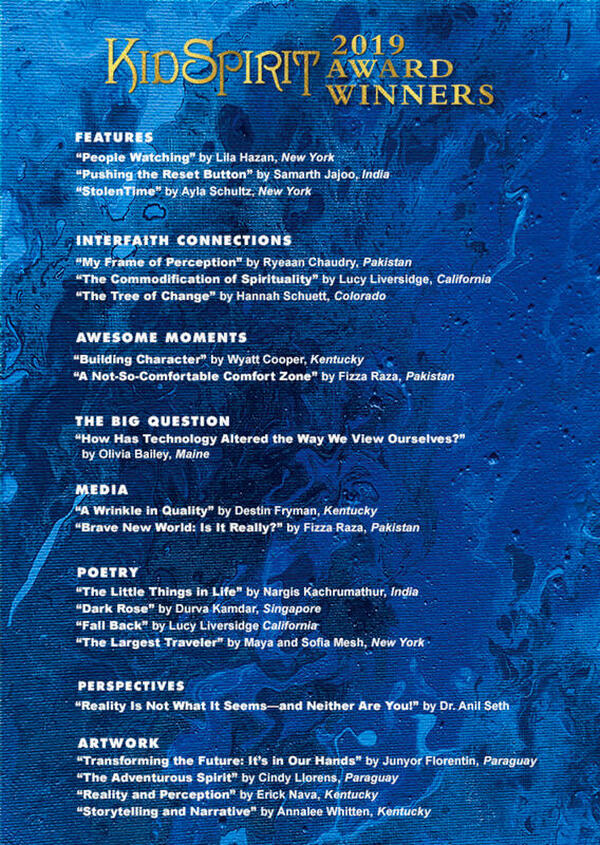Head, Hands, and Heart
Process Theology for Teens and Young Hearts
Process Theology is an interfaith, international movement inspired by at least twenty key ideas. These ideas all fit together but they can all be considered in isolation as well: interconnectedness, process, the primacy of compassion, the importance of beauty, the withness of the body, social justice, creativity, care for the vulnerable, a love of all creatures, trust in the availability of fresh possibilities, and a loving God.
All of these ideas can be "tweaked" in ways that make sense to any religious tradition. They can be presented through stories in the Hebrew Bible, the New Testament, the Qur'an, the Bhagavad Gita, and the Tao te Jing. They can also be presented through forms of worship, prayer, and meditation. For people affiliated with one (or several) of the historical religious traditions, these presentations are very important. For many, the ideas lack life until articulated in the symbols and rituals.
Of course, the ideas can also be studied philosophically, and one way to do this is to read and learn from the philosophy of Alfred North Whitehead. In Open Horizons we make that possible through our Whitehead Video Series. See the Home Page or Whitehead Studies for many other essays and articles by leading figures such as Rabbi Bradley Artson, Patricia Adams Farmer, John B. Cobb, Jr. Bruce Epperly, Marjorie Suchocki, Farhan Shah, and many others.
Not a Worldview but an Outlook in Life and Way of Living with a Spiritual Side
Amid all of this, the key is to recognize and introduce process theology as an outlook on life and way of living in the world, not just a set of ideas or a "worldview" developed by scholars. Process theology needs to be felt as a matter of the hands and heart and mind, neither to the exclusion of the other. It also needs to be linked to music and the arts. It's not just "words,"
It is natural for people to think that introducing process theology is primarily a matter of introducing ideas, or, in Whitehead's words, lures for feeling. But sometimes an overriding focus on ideas can miss the point Essential to process theology for all, including preschoolers (5-8) and teenagers (11-17) is to recognize it as a way growing in emotional intelligence and embodied, wisdom, as adumbrated in the spiritual alphabet below.
attention - beauty - being present - compassion - connections - devotion - enthusiasm - faith
forgiveness - grace - gratitude - hope - hospitality - imagination - joy - justice - kindness - listening
love - meaning - nurturing - openness - peace - play - questing - reverence - shadow - silence
teachers - transformation - unity - vision - wonder - x, the mystery - yearning - you - zeal
All of these ideas can be "tweaked" in ways that make sense to any religious tradition. They can be presented through stories in the Hebrew Bible, the New Testament, the Qur'an, the Bhagavad Gita, and the Tao te Jing. They can also be presented through forms of worship, prayer, and meditation. For people affiliated with one (or several) of the historical religious traditions, these presentations are very important. For many, the ideas lack life until articulated in the symbols and rituals.
Of course, the ideas can also be studied philosophically, and one way to do this is to read and learn from the philosophy of Alfred North Whitehead. In Open Horizons we make that possible through our Whitehead Video Series. See the Home Page or Whitehead Studies for many other essays and articles by leading figures such as Rabbi Bradley Artson, Patricia Adams Farmer, John B. Cobb, Jr. Bruce Epperly, Marjorie Suchocki, Farhan Shah, and many others.
Not a Worldview but an Outlook in Life and Way of Living with a Spiritual Side
Amid all of this, the key is to recognize and introduce process theology as an outlook on life and way of living in the world, not just a set of ideas or a "worldview" developed by scholars. Process theology needs to be felt as a matter of the hands and heart and mind, neither to the exclusion of the other. It also needs to be linked to music and the arts. It's not just "words,"
It is natural for people to think that introducing process theology is primarily a matter of introducing ideas, or, in Whitehead's words, lures for feeling. But sometimes an overriding focus on ideas can miss the point Essential to process theology for all, including preschoolers (5-8) and teenagers (11-17) is to recognize it as a way growing in emotional intelligence and embodied, wisdom, as adumbrated in the spiritual alphabet below.
attention - beauty - being present - compassion - connections - devotion - enthusiasm - faith
forgiveness - grace - gratitude - hope - hospitality - imagination - joy - justice - kindness - listening
love - meaning - nurturing - openness - peace - play - questing - reverence - shadow - silence
teachers - transformation - unity - vision - wonder - x, the mystery - yearning - you - zeal
These qualities of heart and mind, developed by Frederic and Mary Ann Brusssat, and explored in film, music, poetry, photography, are at the heart of a process spirituality. When sharing process theology with children and teens, it is important to keep these in mind. They are the desired 'outcomes' of a process-oriented education The verbal theology (see Twenty Key Ideas in Process Theology) can come later, if at all. The God of love will be met and known in the qualities themselves.

